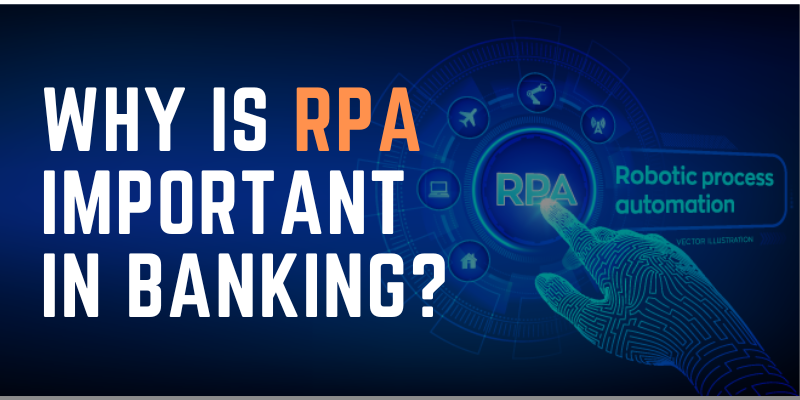
What is RPA in Banking?
RPA can be used in the banking industry to automate numerous time-consuming, repetitive activities such as account opening, KYC, customer support, etc. Using RPA in banking operations improves process efficiency and allows banking organizations to ensure that costs are lowered and processes are completed on time. According to studies, RPA in the banking industry is estimated to reach $1.12 billion by 2025. In addition, by combining AI with RPA, the banking industry can automate complicated decision-making processes such as fraud detection and anti-money laundering. In this blog, we will discuss Why RPA is important in Banking. Enrolling in FITA Academy at RPA Training In Coimbatore will prepare you for the knowledge and practical application of various RPA tools.
Why is RPA Important in Banking?
Bank employees deal with a large volume of customer data, and manual processes are prone to errors. Errors occur due to extensive data extraction and manual processing of financial procedures.
Furthermore, a single error in a critical banking operation might result in theft, fraud, and money laundering. Instead of humans manually processing data, bots may validate consumer information from two systems in seconds rather than minutes. Bots can minimize processing expenses by 30% to 70% when used for laborious procedures. Several processes in banks can be automated to free up personnel for more vital responsibilities.
Top 6 RPA Use Cases in Banking
RPA offers an array of various uses in the BFSI market to free up staff to work on more vital duties. These are some of the processes:
Customer Service
Every day, banks handle many questions ranging from account information to application status to balance information. It becomes difficult for banks to react to queries on time.
RPA can automate such rule-based procedures, allowing them to reply to questions in real time and cut turnaround time to seconds, freeing human resources for more vital duties. RPA can also handle decision-making queries with the use of artificial intelligence. Chatbot Automation uses NLP to enable bots to understand the natural language of speaking with clients and respond as if they were humans. To learn and gain skills about RPA, Join RPA Training In Madurai.
Accounts Payable
Accounts payable is a simple but monotonous operation in the financial system. It entails gathering vendor information, authenticating it, and then processing the payment. This requires minimal brains, making it an ideal application for RPA.
This issue can be solved via robotic process automation and optical character recognition (OCR) systems. OCR can read the vendor information from the digital copy physical form and provide it to the RPA system. RPA will validate the information against the information in the system and process the payment. If an error occurs, RPA can alert the executive for resolution.
Credit Card Processing
It used to take weeks for traditional credit card application processing to confirm consumer information and approve credit cards. Customers were dissatisfied, and banks were harmed due to the lengthy wait. Banks, however, may now process applications in hours thanks to RPA. RPA may communicate with several systems at the same time to validate information such as required documents, background checks, and credit checks and make a finding to approve or reject the application based on rules. RPA Training In Hyderabad is an independent counsel course that gives trainees the aptitudes and awareness of Robotic Process Automation (RPA).
Fraud Detection
One of the essential concerns of banks with the adoption of digital technology is fraud. It is complicated for banks to trace all transactions to alert fraudulent transactions. RPA can track transactions and indicate potential fraud transaction trends in real-time, lowering response time. RPA can help to prevent fraud in certain situations by restricting accounts and preventing transactions.
Report Automation
Like all other public companies, banks must compile and provide reports to their stakeholders to demonstrate their performance. Given the importance of the report, there is no way the bank could make a mistake.
While RPA systems give data in various formats, they can also generate reports by auto-filling the available report format to generate reports with minimal errors and in the shortest amount of time.
Account Closure Process
With such many customers, it is expected to receive some account closure requests every month. Account closures can occur for various reasons, one of which is when a client fails to deliver the required papers.
It is simple to track such accounts, send automated reminders, and schedule calls for mandatory document submissions using Robotic Process Automation. RPA can also assist banks in closing accounts when customers fail to provide KYC documents. RPA Training In Pondicherry will help you increase your knowledge of sophisticated, intelligent applications and put you on the fast path.
